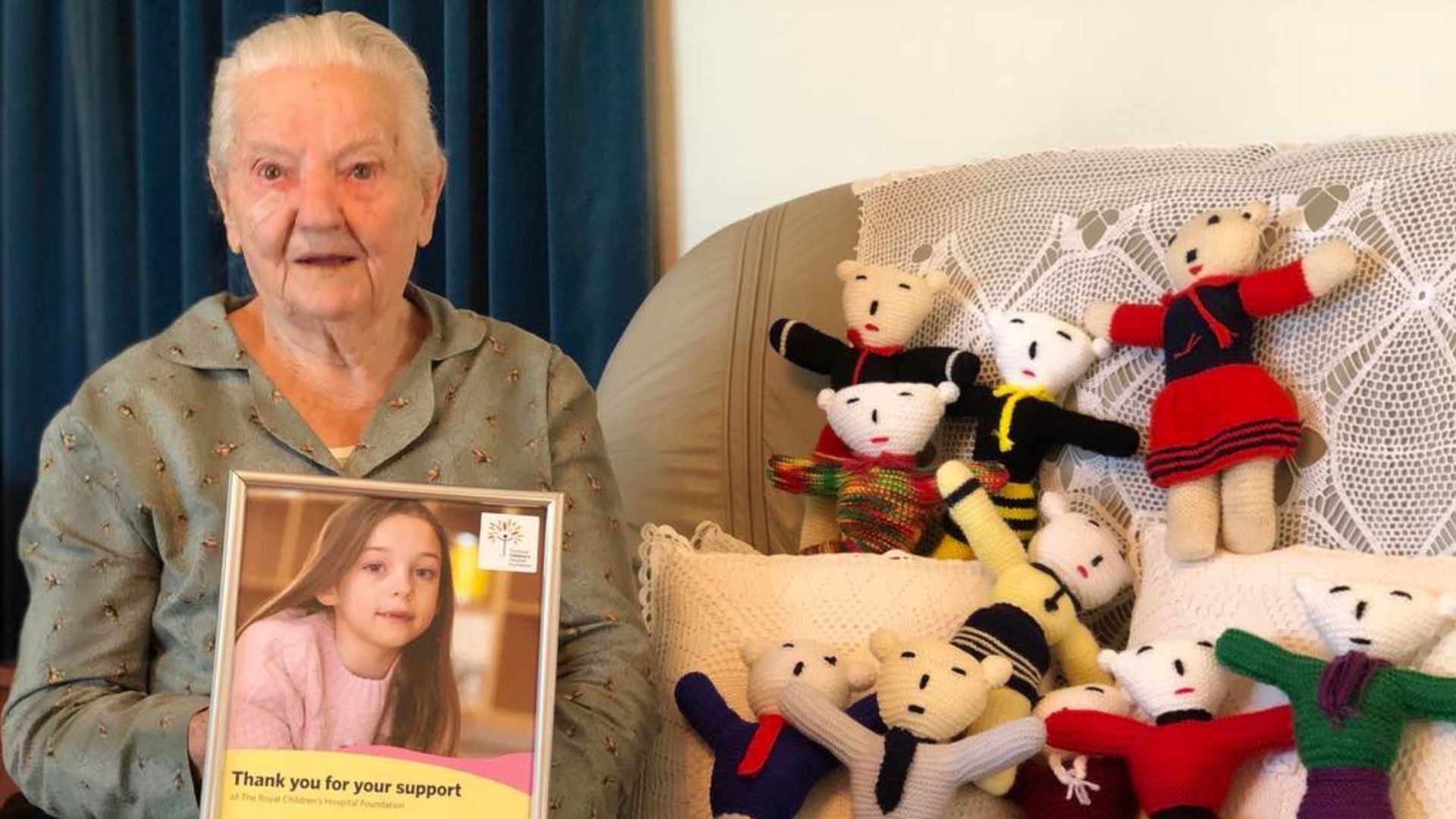By Mary Sinanidis.
Hand-sewn dolls of different colours are strewn around Panagiota Triantafyllou’s home in Reservoir, Victoria.
Yiayia Panagiota, 94, knits them, embroidering smiles on each face, working late into the night to create these playthings for sick children – first for Ambulance Victoria and, more recently, for the Royal Children’s Hospital.
“I do my chores, switch off the TV after the weather report and then I listen to the radio, sitting on my little chair,” she tells The Greek Herald.
“As I knit, I wonder how it must be to have a child with a life-threatening illness or disability.”
It’s a meditative process.
“I am lucky that my two daughters, Dimitra and Mina, live nearby and they are healthy. I also have grandchildren and great grandchildren too. They are good kids. They don’t smoke or do drugs,” the 94-year-old says.
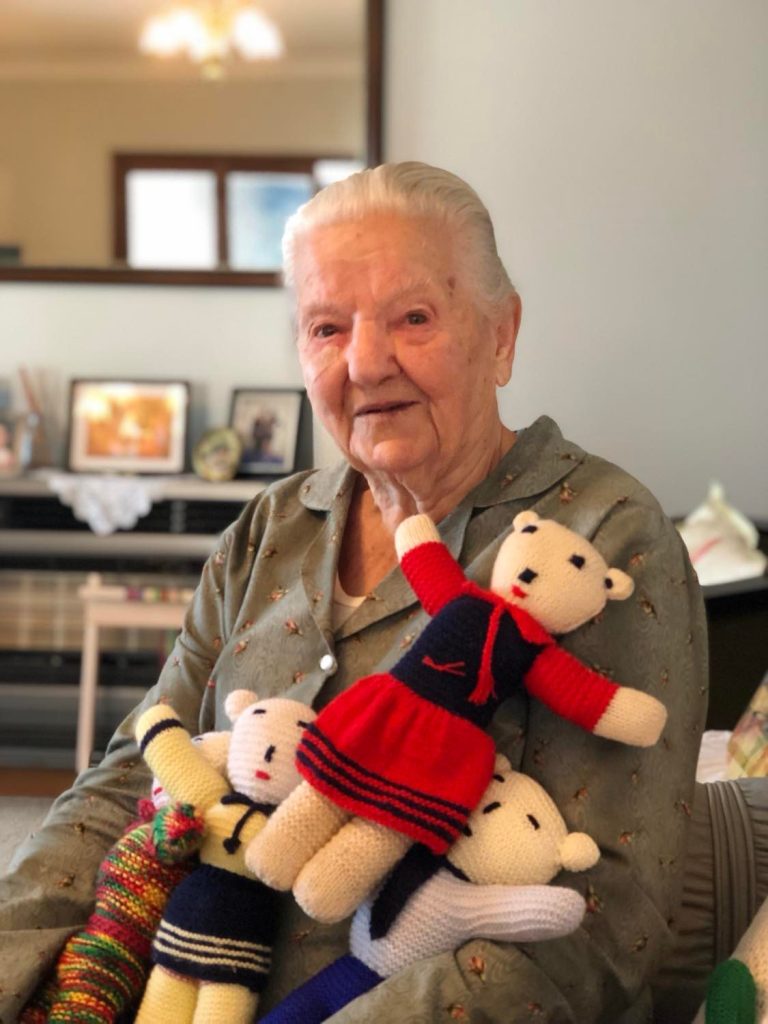
“Other people have problems with their children, but I thank God, from morning until night, that I have such great kids that don’t give me sorrow.”
She darts a glance at her daughter Dimitra, a retired high school teacher, preparing tea and a generous serving of cake made by her other daughter, Mina. Her chair faces a wall covered with frames of family members to keep her company.
“Let me introduce you,” she says before gushing into explanations of each child and grandchild’s achievements.
There’s the plastic surgeon who moved to Sydney, the space engineer, the police officer, and the grandchildren who she also makes dolls for.
Her husband, who died a few years ago, would wake up at night and find Panagiota’s hands productively at work. In those days, it wasn’t dolls but quilts, curtains, tablecloths and other intricate designs.
“He would be surprised to see me up and he would say, ‘Panagiota, you could have bought a second house to rent and never have to work with all the money you’ve spent on threads’,” she laughs.
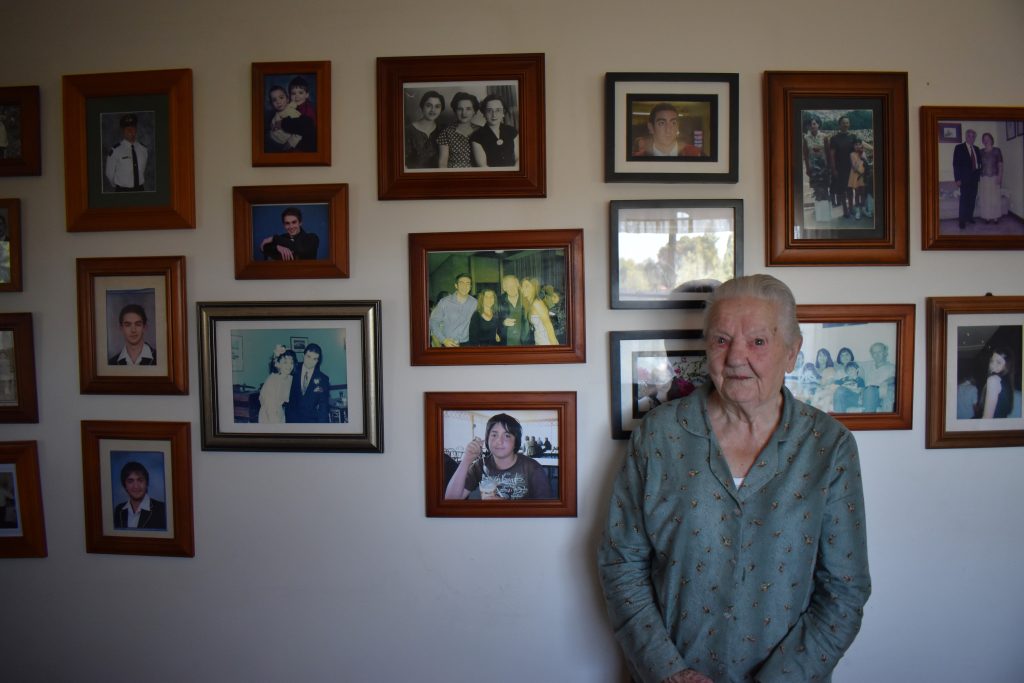
Laughter turns to tears she chokes back, as she remembers the good times and bad. From taking three buses to get to Epworth Hospital where she worked in the laundry, to her husband’s eye injury and buying her house in Reservoir 38 years ago. One memory leads to the next.
She learnt to embroider, crochet, knit from a young age.
“All girls did then,” she said, adding that her daughter Dimitra, an art teacher, also took the time to learn.
“Not like you,” Dimitra quips, adding that her interest lies more in art, in painting.
Doll-making for Panagiota began just prior to COVID-19. Her daughter Dimitra says she and her sister “wanted to find a smaller easy-to-finish project as much of mum’s work is time-consuming.”
The idea of making dolls appealed to Panagiota. She donated some to Ambulance Victoria and then decided to create more for the sick children at the Royal Children’s Hospital – a total of 30 in the recent batch with the promise of more to come.
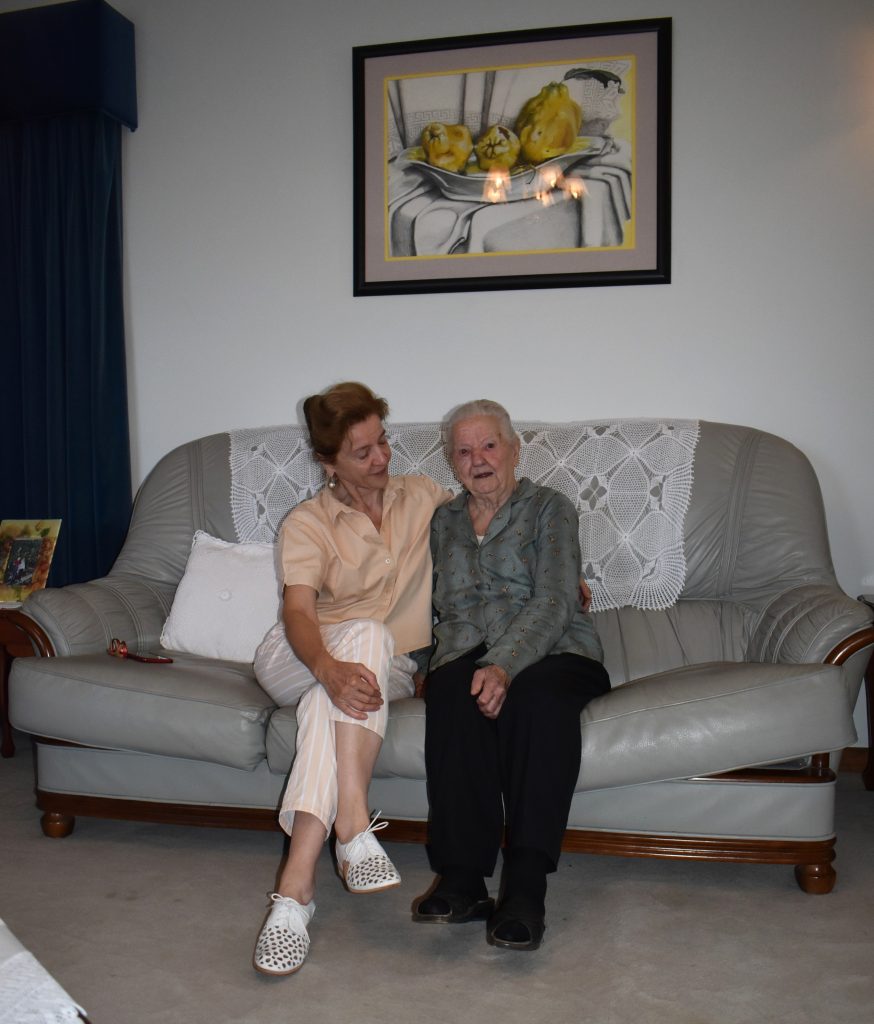
Then came a knock on the door to surprise her and she received a framed certificate of thanks.
“I couldn’t believe that the hospital would thank me. I thought ‘Oh my God.’ I was so dizzy and moved by this,” Panagiota says, pointing to her prized display.
“Look at this photograph of the beautiful koritsaki (little girl) in the certificate they sent me. My dolls are going to children like her!”
During the last years of her husband’s life, he was in Frontida Care.
“The elderly lady in the next room had dementia and would hold a doll and talk to it, so I can only imagine how the children must feel,” she says.
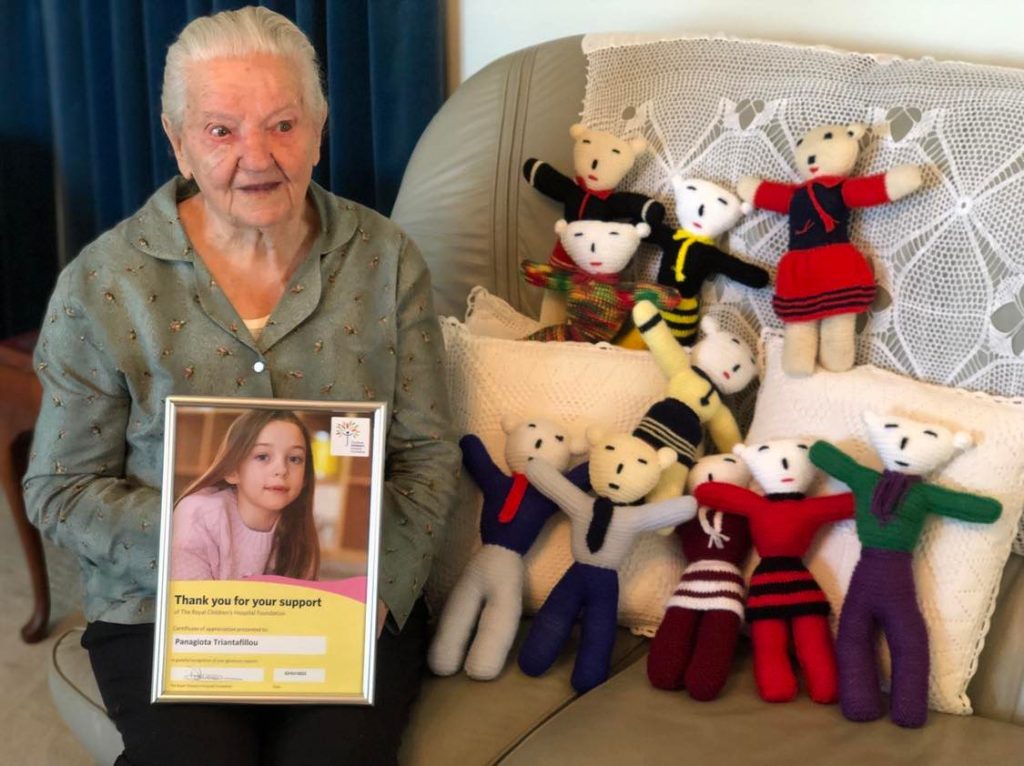
“I will keep making dolls for the children. People say I should sell them, but I want to give them away. I want to make people happy. I’m also thinking of knitting them some jumpers or other things to keep the children warm in winter. Like I do for my own great grandchildren.”
Panagiota asks me what I think she should make. We both wonder what the next steps should be.
“But I’ll take a break in August because my Phaedon (grandchild who is a plastic surgeon in Sydney) is getting married in Corfu this September, and I promised to go to the wedding!” she answers.
She’ll stop at her beloved Stymfalia, Corinth, where her brother has maintained her family house.
“I’ve been to Greece three times since coming in 1963,” she explains.
Dimitra and Mina were born in Corinth on Valentine’s Day just a year apart and came to Australia when they were six and seven years.
“People thought they were twins,” she says.
“We came to Australia for the children, to give them a better life, and we stayed for the children. We couldn’t go back to Greece and put them in the school system there.
“When I went back to Greece in the past, I felt like a ‘xeni’ (foreigner). My parents had passed away and many of my siblings had left. But now it’s time to go back again.”
She’ll return to the place where she learnt to knit, to crochet, to embroider. One last time.
*All photos copyright: The Greek Herald / Mary Sinanidis

